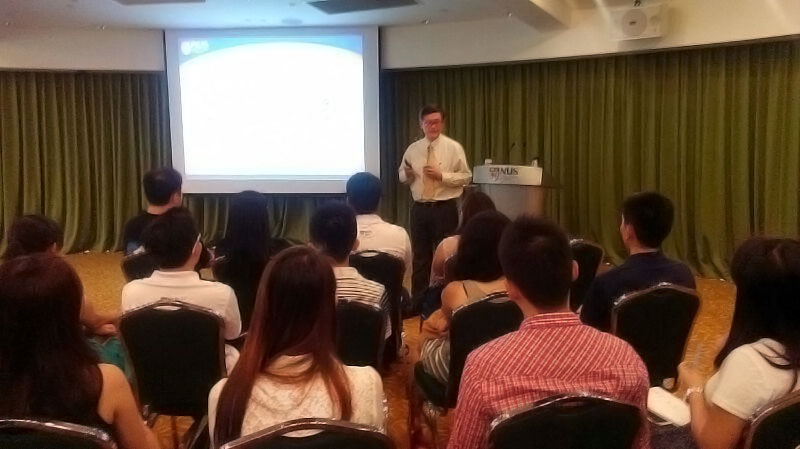
On 12th March, NUSSU organized a forum with NUS Provost on Undergraduate Academic Matters. More than 20 representatives attended the event to gain insights on the proposed academic policies pertaining to prospective and current NUS undergraduates. Prof. Tan Eng Chye, the Provost, shared a few major changes that will be implemented in Academic Year 2014/15.
Career Preparation
In academic year 2014/15, NUS will scale up on the integrated career preparation programmes to produce more workplace-ready graduates. There are also plans to offer the career preparation modules in various RCs and Halls to provide a vibrant and diverse learning environment for the students. In addition, Provost mentioned about the plan to introduce internships as a graduating requirement for Faculty of Engineering (FoE) and School of Computing (SoC) students. NUS is also looking into better integrating the special programmes such as NUS Overseas Colleges (NOC) and iLead into students’ curriculum, and the possibility of offering internships as an option for honours projects in lieu of a dissertation.
Gradeless First Year or Semester
One of the most revolutionary changes in the NUS curriculum in the past decade will be the ‘gradeless first year or first semester’ policy. The Provost mentioned that Yong Loo Lin School of Medicine (YLLSoM) “has implemented a Distinction/Pass/Fail system for its first and second year undergraduates” which results in considerably reduced stress level without compromising student performance. According to the Provost, the new policy is intended to “transit the student into a new mind set for learning”. In Provost’s recent blog post, he further explained the reasons of this revolutionary change in NUS curriculum. During the forum, Provost also mentioned a few possible arrangements that were under consideration:
- First Year S/U Policy: Students can choose up to 10 modules in their first year that will be graded on Satisfactory (S) or Unsatisfactory (U) basis. The modules can be any modules that the students can take during their first year.
- First Semester S/U Policy: Students get to choose 5 modules in their first semester that will be graded on S/U basis and 3 additional S/U options in any of the remaining semesters, generally for modules outside their faculty and major requirements.
- First Year CAP Exclusion Policy: All first year grades will be shown on the transcript but automatically not counted into the CAP.
Provost mentioned that in all three options that are being considered, letter grades will still be accorded to the modules, and students will still be assessed for their work. The difference is whether the letter grade will count towards a student’s CAP.
It is possible that coupled with existing programmes such as Student Exchange Programme (SEP) and Industrial Attachment (IA), a student may have significant number of modules that can be graded on pass or fail basis. However, the Provost emphasized that there will still be a cap on the number of modular credits earned outside NUS that can count towards an NUS degree.
Several questions and concerns were raised during the forum. One of them was that there is a slight difference between YLLSoM gradeless policy and the proposed policy and, therefore, the proposed policy might not serve its purpose to alleviate stress in freshmen. The Provost replied that while the policy aims to reduce stress level in NUS, it is important for students not to lose the motivation to do well. An S/U option policy, for instance, would provide the motivation to do well and, yet, allow students to exclude the grade if they do not perform as well. Another concern raised was regarding how this policy will affect the selection for programmes like SEP which are currently based on CAP. The Provost answered that the University may be relooking the selection criteria for SEP, to look beyond CAP as the primary indicator.


